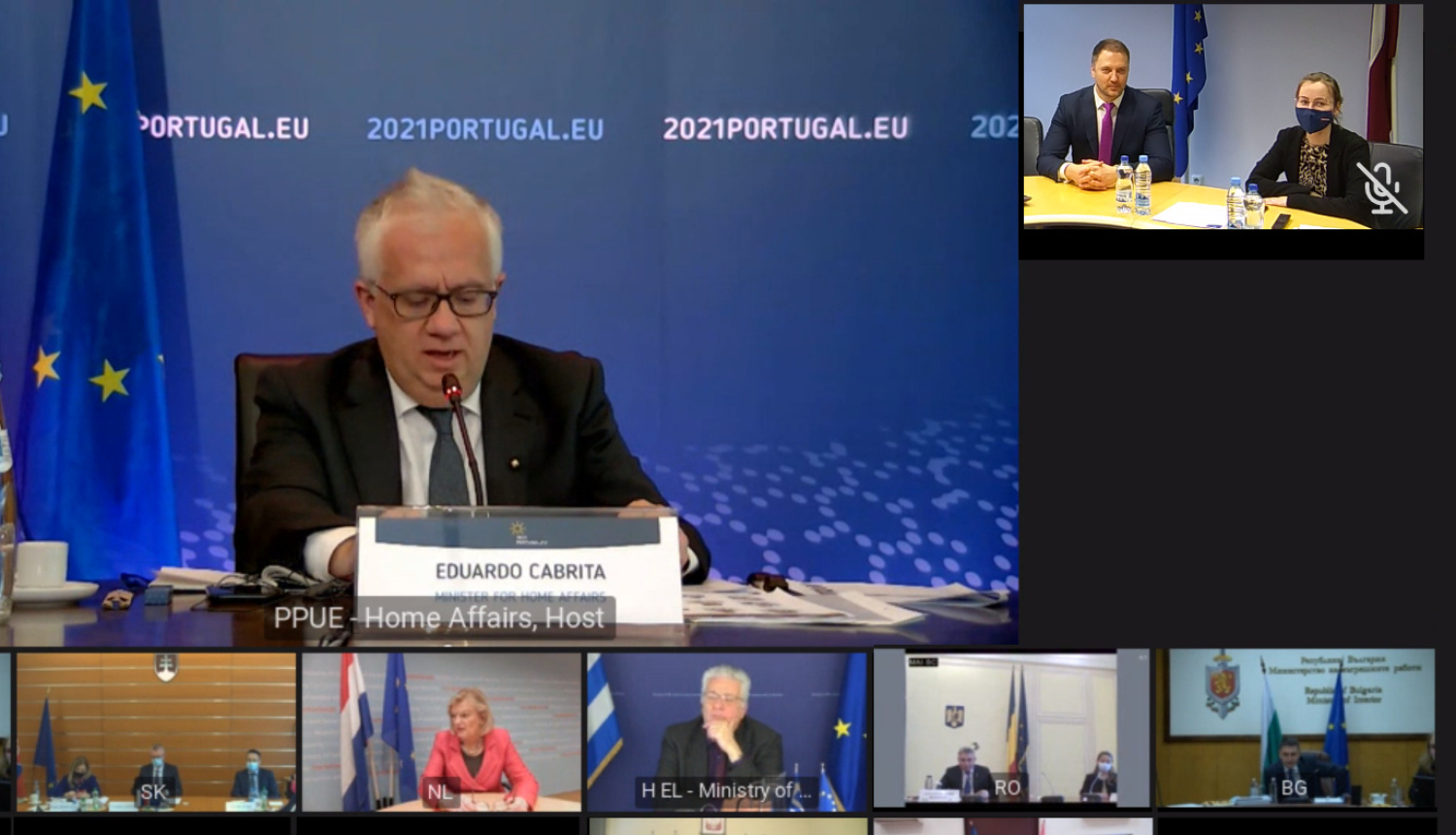On Thursday, 28 January, the Minister for the Interior Mr Sandis Ģirgens participated in an informal videoconference meeting of the Ministers for the Interior of the European Union (EU) organized by the Portuguese Presidency.
Inter alia, the Portuguese Presidency is continuing the intensive work begun by the German Presidency on the Pact on Migration and Asylum, published last September, which was also one of the issues at the meeting.
The Ministers for the Interior of the EU discussed three most important elements of European migration and asylum policy - developing the external dimension or cooperation with migrants' countries of origin and transit, effectively managing migration flows at the EU's external borders, and a mandatory but flexible solidarity mechanism for all Member States, which at the same time would match both the capabilities of the supporting Member States and the needs of the support receiving Member States.
Taking note of the main debate was on the permanent EU-level solidarity mechanism proposed in the Pact on Migration and Asylum, Mr Ģirģens told at the meeting: “Special attention should be paid to prevention in order to prevent the root causes and contributing factors of illegal migration, and to the management of external borders in order to stop illegal migration flows before the EU borders. Member States' expressions of solidarity in the reception of migrants may vary and their implementation should be flexible in order to respect the national situation, geographical location and capabilities of each Member State."
Ministers continued to discuss the future of the Schengen area (Schengen allows for the free movement of goods, persons, services and capital). The current Covid-19 crisis has had unprecedented negative consequences for the normal functioning of the Schengen area. As a result, in Europe at the beginning of 2020, many Member States unilaterally reintroduced border controls at the EU's internal borders and most Member States introduced restrictions on movement.
The reintroduction of border controls has also had a significant negative impact on people's lives and the economy, to the detriment of the single market and the functioning of supply chains.
Therefore, during the meeting, the ministers admitted the importance of changing the approach used at the beginning of the year to reintroduce controls at internal borders. Instead, Member States should seek to maximize the effectiveness of alternative measures, emphasizing in particular that the reintroduction of border control at internal borders in order to deal with situations of danger should be maintained only as a last measure.
At the end of the meeting, ministers discussed the future of the European Law Enforcement Agency (Europol). In the second half of 2020, a number of policy guidelines were adopted calling for the strengthening and extension of Europol's mandate, leading to new legislative proposals by the European Commission at the end of last year. They aim to enhance Europol's cooperation with the private sector, to enable it to process large and complex data sets, to strengthen its role in research and innovation and cooperation with third countries and the European Public Prosecutor's Office, and to strengthen Europol's financial and human resources.
Ministers admited that Europol provides invaluable operational support to Member States' law enforcement authorities in various areas of the fight against crime. Cooperation between Europol and the law enforcement agencies of the EU Member States has led to the dismantling of many criminal and terrorist networks, the arrest of dangerous criminals and the recovery of illegal assets. Therefore, the strengthening and development of Europol's activities is in the interest of all Member States and should be considered a priority in the field of internal security. Ministers generally welcomed the proposals contained in the new legislation and considered them as a good basis for further discussions at expert level.
Prepared by
Gunita Kogane
Public Relations Specialist
Communication Department
The Ministry of the Interior



